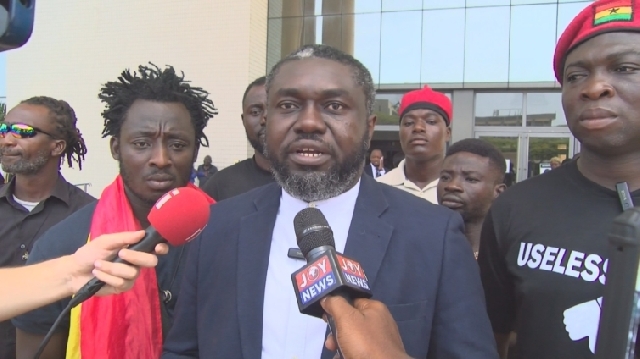Barker-Vormawor critiques Adu-Boahene’s “classified” defense strategy
 Oliver Barker-Vormawor
Oliver Barker-Vormawor
A private legal practitioner Osagyefo Oliver Barker-Vormawor, has launched a pointed critique of former intelligence chief Mr. Kawbena Adu-Boahene’s defense in his ongoing embezzlement case.
Barker-Vormawor argues that Adu-Boahene’s insistence on the classified nature of certain operations is undermined by the very public release of those details.
In a scathing commentary on Facebook, Barker-Vormawor notes that Adu-Boahene “refused to inform investigators” about allegedly covert operations during CID interrogations, citing their classified status.
Yet, he observes, those same details “have now been released through his lawyers into the public domain.” Barker-Vormawor questions the practical value of these disclosures for citizens without security clearance, and why Adu-Boahene never raised the issue with the National Security Coordinator or the Attorney-General’s office when on bail.
Describing the move as a “red herring,” the lawyer stops short of accusing Adu-Boahene of fabrication, but insists that “we must interrogate independently” the veracity of the operations.
He warns that the former head of an agency should not assume that public disclosure shields him from further scrutiny.
Central to Barker-Vormawor’s critique is the lack of any evidence directly linking the allegedly embezzled funds with the covert operations Adu-Boahene has outlined.
“There is absolutely no proof that the monies he is said to have embezzled and the monies used for these possibly true activities are the same,” he asserts.
He dismisses the lawyer’s claim of immunity under state-security provisions as “preposterous” and akin to “blackmail justice.”
Barker-Vormawor further cautions that unauthorised disclosures—even if intended to negate criminal liability—could expose Adu-Boahene to additional consequences.
He reminds readers that while national security operations are necessarily covert, they are not beyond audit: “Covert special-purpose vehicles require approval, and can be audited.
No one has the power to spend state funds without accountability.”
The lawyer concludes by urging government auditors with security clearances to examine the disbursements in question, reinforcing the principle that “national security is largely covert but not a black hole.” He emphasises the need for transparency and accountability, even—or especially—when dealing with clandestine state operations.
Source: Classfmonline.com/Cecil Mensah
Trending News

GES boss opens smart classroom block at OWASS under digital learning initiative
08:44
Uphold integrity, patriotism and shun eye-service – Ing Lamptey urges GWCL staff
13:39
First Lady praises Ghanasco on the launch of 65th anniversary
11:36
Minority boycotts proceedings to demand release of Wontumi from EOCO custody
15:31
E/R: Suhum MA Experimental C Basic School wins the 3rd Edition of ADVAG 2024 Maths and Science Quiz
10:42
Western Regional Minister orders urgent protection of Daboase water treatment plant buffer zones
09:22
Achiase DCE appeals to Army Chief for annual military recruitment slots for locals
17:19
Omane Boamah rallies global partners to help build "The Africa We Want" at LSE Futures Forum
12:48
TPMC to partner with security agencies to crack down on unlicensed traditional medicine practitioners
11:00
Annoh-Dompreh makes strong case for election of MMDCEs on floor of Parliament
14:18



